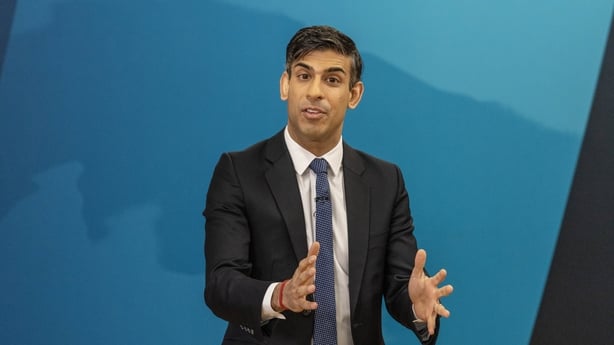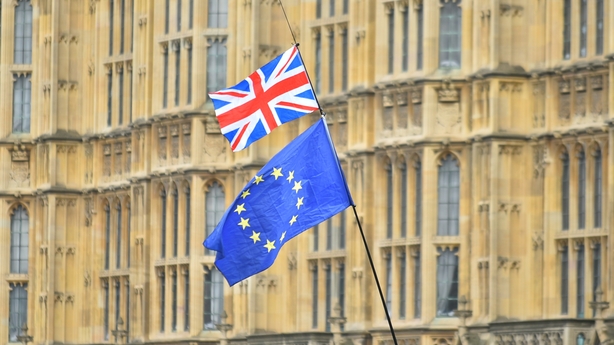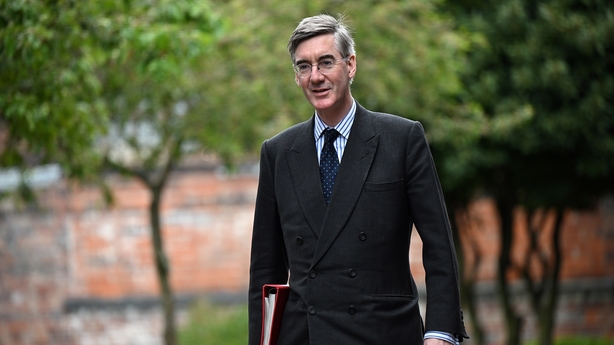There were sighs of relief in many quarters when it was announced that the British government was not going ahead with plans for a wholesale bonfire of EU regulation.
Those groups included British business representatives and environmentalists and, privately, EU officials.
However, the move has further embittered the hard Brexiteer wing of the Conservative Party. They were already angry about the Windsor Agreement and the consequent reversing of plans to unilaterally rewrite the Northern Ireland Protocol.
The Retained EU Law bill (REUL) was intended to get rid of all EU law by the end of this year and so ensure Britain's regulatory independence. It was the ultimate expression of long-standing demands by Brexiteers to cut free from 'Brussels red tape’.
The idea was to revoke or replace thousands of EU regulations but the bill also contained a ‘sunset clause’. This nuclear option meant that nearly all such laws remaining in place by the end of this year would simply lapse.
Given the sheer volume of laws involved – there were thought to be around 100 to do with aviation alone – there was concern that there would not be enough time to replace them all. That would mean whole sectors left in legal limbo.
After much speculation, Trade Secretary Kemi Badenoch announced that the sunset clause would not be implemented. An amendment to this effect is to be made in the Lords after the bill had already been approved by the Commons.

Tory Brexiteers reacted angrily.
"What the hell are you playing at?" asked chair of the European Research Group (ERG) Mark Francois.
Jacob Rees Mogg said Prime Minister Rishi Sunak had "broken his word".
Mr Sunak had promised to review or repeal all EU law within 100 days of becoming leader. Angry Tory backbenchers pointed to the video Mr Sunak had put out for his campaign which showed piles of paper marked "EU Legislation" and "Red Tape" being put into a shredder.
Part of the problem is that no one seems to know how many EU laws there are on British statute books. Civil servants keep finding new ones. They relate to everything from airspace management to anti-discrimination laws to working time directives.
When Rishi Sunak made his campaign video there were thought to be 2,200 such laws. However, the latest number is twice that – some 4,400 according to an online update published by the UK government.
The biggest number is in the Department of Environment, Food and Rural Affairs (DEFRA) with 1,671 covering areas like water and air quality and wildlife protection.
In her statement Ms Badenoch said that the government has already repealed 1,000 EU laws and that the REUL bill will specify another 600.
Areas to be targeted on top of that will be in financial services and employment law, which she said will free up money for investment and save money for businesses.
Giving her reasons for dropping the sunset clause, she cited the current workload on civil servants along with the "growing volume of REUL being identified, and the risks of legal uncertainty".
Ms Badenoch, like Mr Sunak, has been an enthusiastic Brexiteer from the start. And her decision to drop the sunset clause was backed during exchanges in the House of Commons by other Brexiteers like Theresa Villiers and David Davis who described the sunset provision as "unwise".

The retention of EU law actually arose from a decision made by Brexiteers. A snapshot of EU laws was taken into British law on Brexit day to ensure a smooth transition for the legal system. This proposal did not cause much controversy at the time.
However the argument for a smooth transition is not cutting much ice now with a diehard group represented by the ERG.
They are instinctively suspicious of regulation anyway and blame the civil service for the fact that Brexit has not been seen as a success.
The workload on civil servants being given as one of the reasons that the jettisoning of EU law could not go ahead would not have gone down well.
"Regrettably, ‘the blob’ has triumphed," said Mr Rees Mogg.
It was reported that 20 Conservative MPs met with Cabinet Secretary Simon Case to vent their concerns.
Rishi Sunak had already slumped in popularity according to one opinion poll by Opinium before he went on to lose over 1,000 seats in the local elections. He could be seen to be under pressure.
But the local elections saw the threat from the hard right fail to materialise. The Reform Party founded by Nigel Farage to take on the Conservatives and get a 'proper Brexit' was polling 9% nationally at one stage last December – almost half the Conservative Party rating at the time.
In the event, out of 475 candidates, Reform got only six seats and UKIP has now lost all its councillors at District and County level.
And the results from the council area of Bath and Somerset North East which contains Mr Rees Mogg’s own constituency showed the Conservatives almost wiped out by Liberal Democrats.
Also, the revolt by the ERG over the Windsor Agreement failed to get the backing of a majority of the parliamentary party.

So while the power of the hard Brexiteers within the Conservative party may have been tamed there is still a lot to worry about in the REUL bill according to some pro-EU experts.
Anton Spisak writing for the Centre for European Reform (CER) thinktank said EU officials are expressing concern in private about the bill.
It still contains provisions to abolish the supremacy of remaining EU law and dilutes rulings of the European Court of Justice as it applies to EU law both of which could compromise the delicate balance achieved in the Windsor Agreement, he states.
And although Ms Badenoch's announcement has softened the immediate impact, it still appears that the British government wants to revoke EU laws.
Mr Spisak points out that this would have consequences for the "level playing field" terms of the EU's Trade and Cooperation Agreement and Northern Ireland in particular.
"The risk is that Northern Irish businesses, which default to EU production rules, could be undercut by lower standards from GB producers," he wrote.
And the British government which is under pressure to deliver Brexit dividends could be tempted to lower regulatory standards.
This pressure was exemplified when the UK regulator blocked Microsoft’s £55 billion takeover of gaming firm Activision Blizzard. Microsoft’s President Brad Smith reacted by saying the EU was a much better place to do business than Britain.
The British government is also planning to reduce the amount financial institutions must hold in reserve as a way of freeing up "tens of billions of pounds" for investment in infrastructure.
This provision is contained in the Financial Services and Markets Bill which has already passed the commons and would on its own revoke another 500 EU regulations.
However, this divergence would threaten Britain’s export of financial services to Europe which was worth €31 billion in 2021.
There is also the question of how much deregulatory risk should be taken at a time when there are concerns about the stability of the worldwide financial system.
But Britain may feel forced to take a gamble and this could still mean anxious days ahead for those hoping for calmer post-Brexit arrangements.







